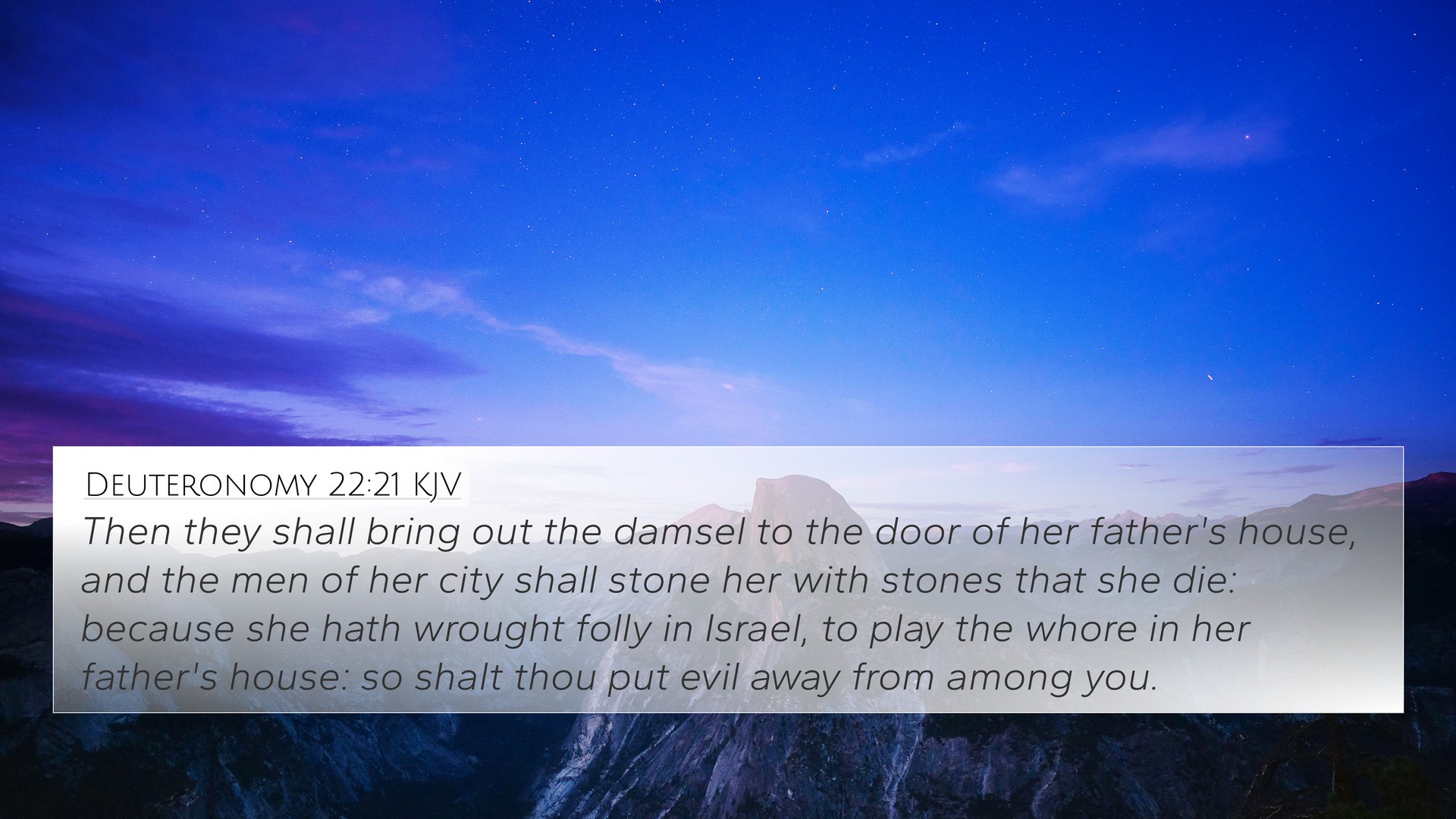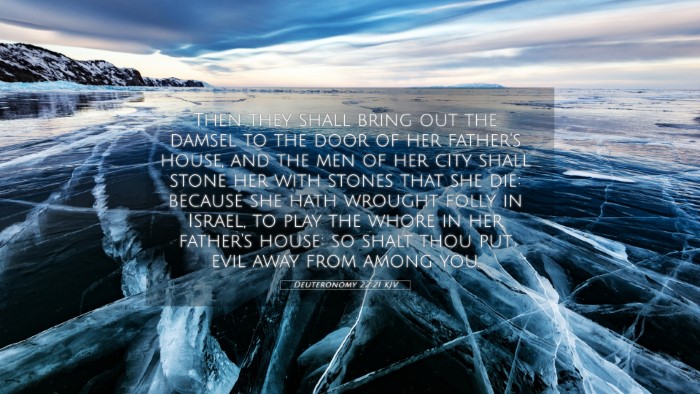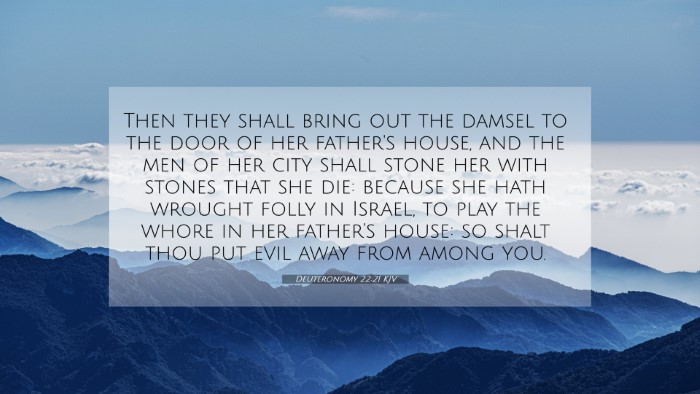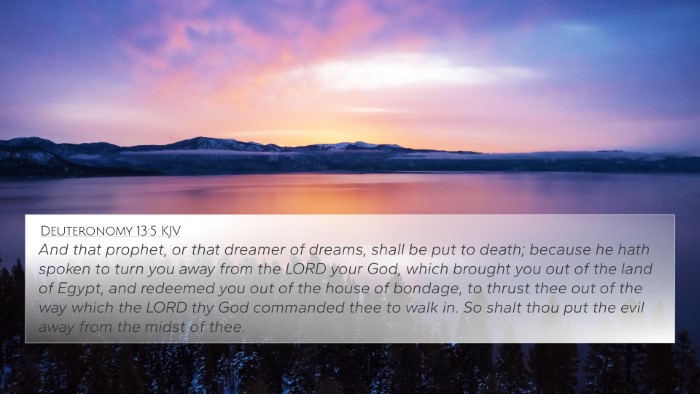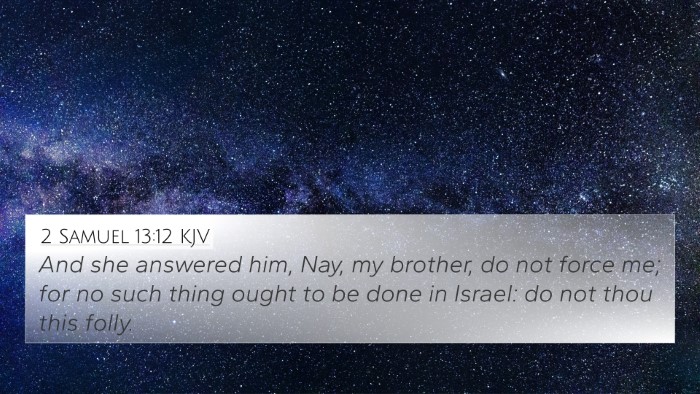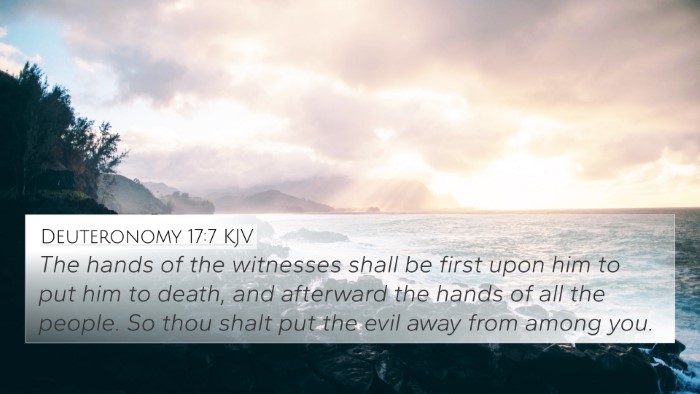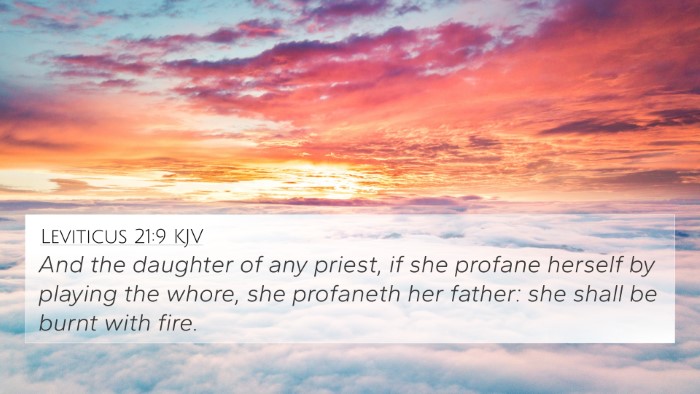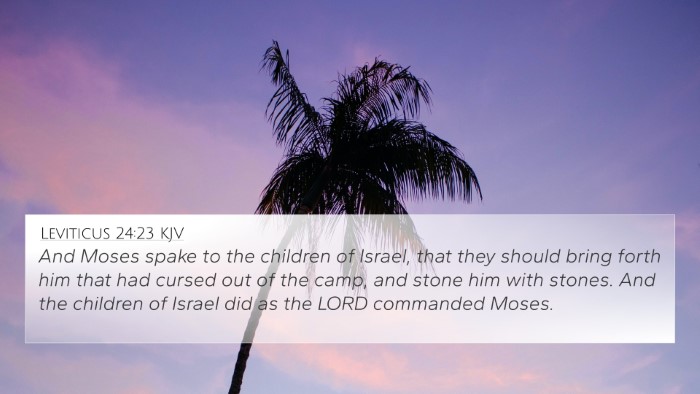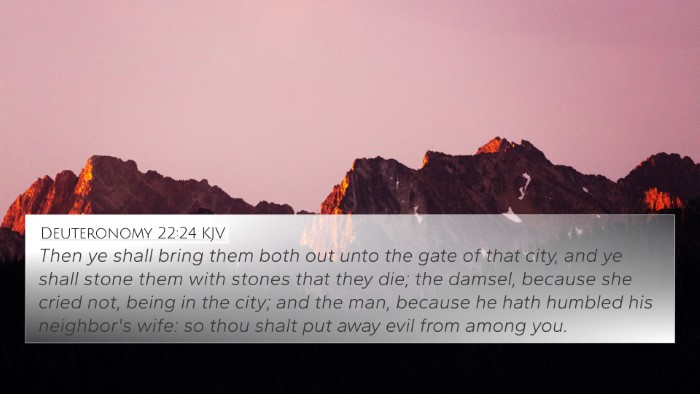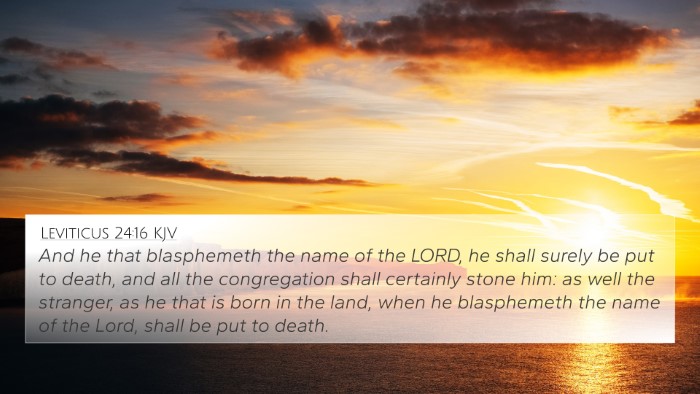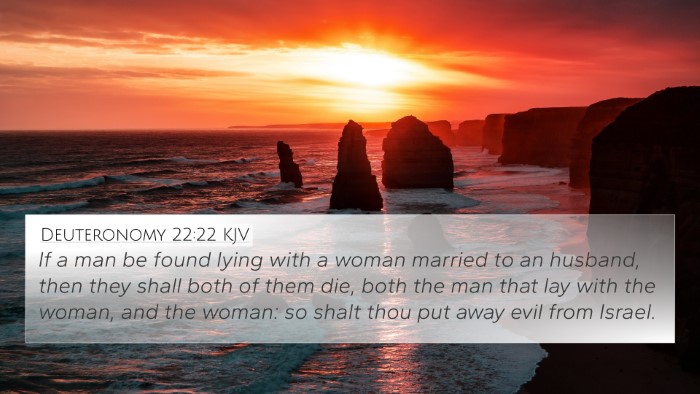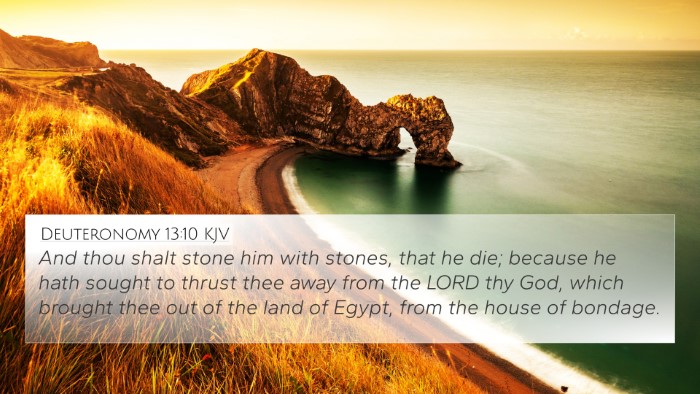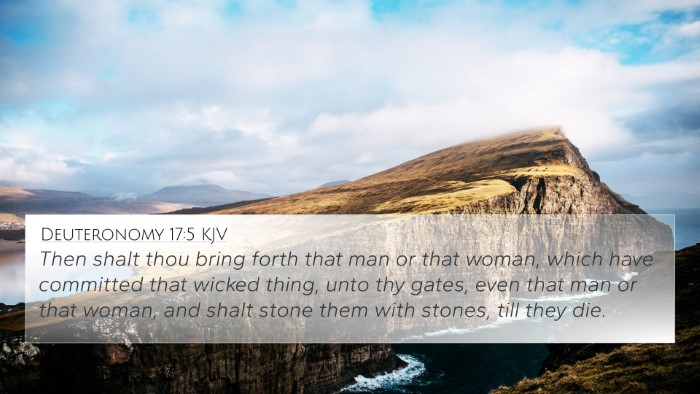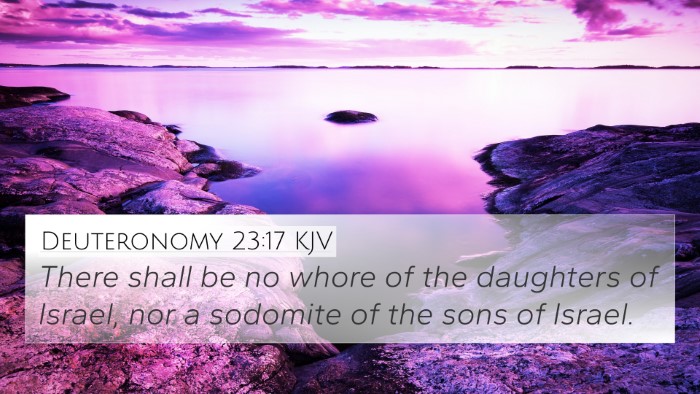Understanding Deuteronomy 22:21
Bible Verse: Deuteronomy 22:21 - "Then they shall bring out the young woman to the door of her father's house, and the men of her city shall stone her to death with stones; because she has done a disgraceful thing in Israel, to play the harlot in her father's house. So you shall put away the evil from among you."
Introduction to the Meaning of Deuteronomy 22:21
This verse addresses severe judgments pertaining to sexual immorality, particularly in the context of ancient Israelite culture. Its implications are profound and resonate across various biblical themes, including sin, judgment, and societal norms. The commentaries by Matthew Henry, Albert Barnes, and Adam Clarke provide valuable insights into the interpretation and application of this verse.
Commentary Insights
Matthew Henry's Commentary
Matthew Henry emphasizes the seriousness of the issue of fornication, particularly the betrayal involved when a young woman plays the harlot in her father's house. He notes that the family’s honor is at stake, and thus the punishment reflects the gravity of transgressions against societal and divine laws. Henry also explores the broader principle of purging evil from the community, pointing out that sin, if left unchecked, can corrupt the moral fabric of society.
Albert Barnes' Commentary
Albert Barnes explains that this statute highlights not only the act of immorality but the importance of maintaining holiness and purity within the community. The reference to the "men of her city" participating in the punishment illustrates community accountability. Barnes contextualizes this harsh punishment within the theocratic system of Israel, where society was to uphold God's laws rigorously to prevent the spread of wickedness.
Adam Clarke's Commentary
Adam Clarke, in his analysis, underscores the cultural implications of this command. He acknowledges that while the punishment may seem severe by modern standards, it reflected the values and convictions of the Israelites at the time. Clarke suggests that the harsh punishment aimed to deter others from similar behavior, thereby maintaining societal order and upholding the sanctity of familial relationships.
Thematic Bible Verse Connections
This verse connects with various themes found throughout the Bible, including:
- Sin and Punishment: The nature of sin and its consequences is a recurring theme in Scripture, echoing through numerous verses like Romans 6:23, which states, "For the wages of sin is death."
- Community Accountability: This notion is underscored in Galatians 6:1, where believers are encouraged to restore those caught in sin.
- Purity and Holiness: 1 Peter 1:16 states, "Be holy, for I am holy," reflecting God's call for His people to maintain purity.
- Judgment and Mercy: The balance of God’s judgment alongside His mercy can be seen in verses like Psalms 103:10.
- Family Honor: The importance of family and honor in relationships is prevalent throughout the Bible, touching on verses such as Exodus 20:12.
- Atonement and Sacrifice: The necessity of atonement for sin is discussed throughout various offerings regulations in Leviticus, especially Leviticus 4:27-31.
- God's Law: The absolute nature of God's law is encapsulated in Psalm 119:142.
Cross-Referencing Biblical Texts
To gain a deeper understanding of Deuteronomy 22:21, it’s helpful to look at cross-references that further elucidate its context and significance:
- Leviticus 20:10 - Addresses the punishment for adultery.
- 2 Corinthians 5:10 - Discusses the judgment seat of Christ and accountability for actions.
- 1 Corinthians 5:1-5 - Talks about the necessity of church discipline against immorality.
- Revelation 21:8 - Lists the types of people who will face judgment in the second death.
- Matthew 5:27-30 - Jesus' teachings on adultery highlight moral righteousness.
- Proverbs 6:32-33 - The folly and consequences of sexual immorality are outlined.
- Deuteronomy 24:1-4 - Further laws regarding marital relationships and purity.
Conclusion: Themes and Their Importance
The verse in Deuteronomy 22:21 serves as a stern reminder of the importance of sexual morality, family honor, and the consequences of turning away from God’s commandments. In viewing this passage through the lens of cross-referencing biblical texts, a pattern emerges—God’s desire for His people to live in holiness and to uphold the sanctity of their relationships. By employing tools for Bible cross-referencing, believers can better understand the implications of their actions and the seriousness of sin within the framework of biblical teachings.
Tools for Bible Cross-Referencing
To enhance your study, consider utilizing:
- Bible Concordance: Helps in locating specific verses and related passages.
- Bible Cross-Reference Guide: Provides detailed connections between different scriptures.
- Cross-Reference Bible Study: A method to delve into similar themes across the Bible.
- Comprehensive Bible Cross-Reference Materials: Books or online resources that compile extensive references.
FAQs about Cross-Referencing Bible Verses
Here are some frequent questions related to the study of Deuteronomy 22:21:
- What verses are related to Deuteronomy 22:21? This verse connects to themes found in verses like Leviticus 20:10 and 1 Corinthians 5:1-5.
- How do Deuteronomy 22:21 and Matthew 5:27-30 connect? Both verses address the serious nature of sexual immorality from different perspectives in the Old and New Testament.
- What is the broader moral lesson of Deuteronomy 22:21? The core lesson emphasizes the need for moral integrity and communal accountability in maintaining righteousness.
Final Thoughts
Studying Deuteronomy 22:21 through a cross-referencing lens not only sheds light on the severity of sin but also reveals God’s unwavering call to holiness among His people. By exploring the connections between this and other Bible verses, individuals can deepen their understanding of Scripture and foster a stronger commitment to living according to God’s commandments.
